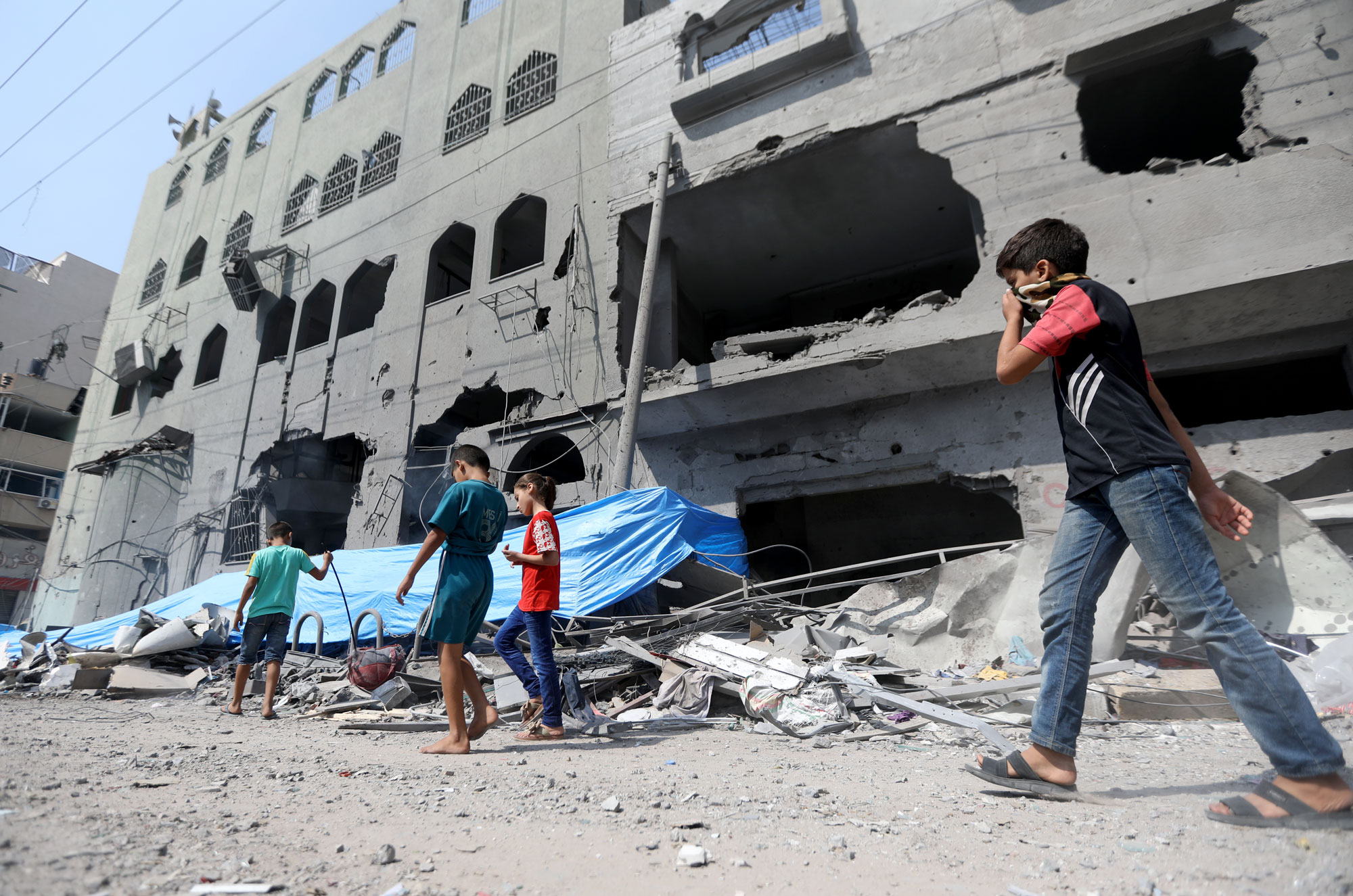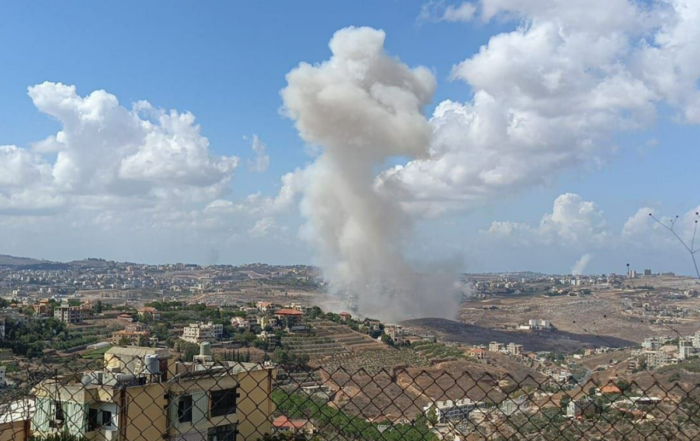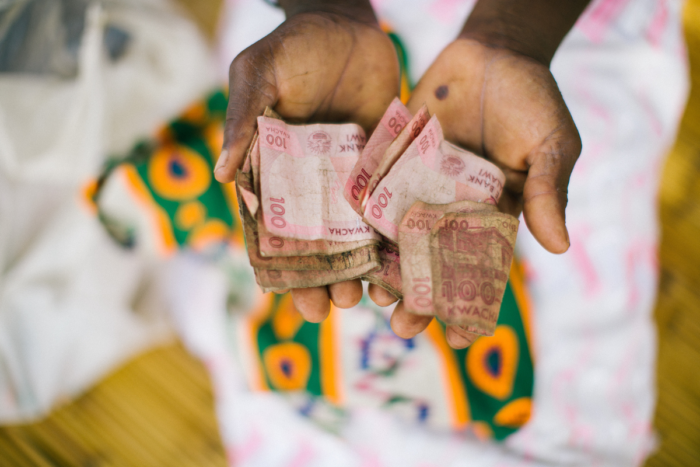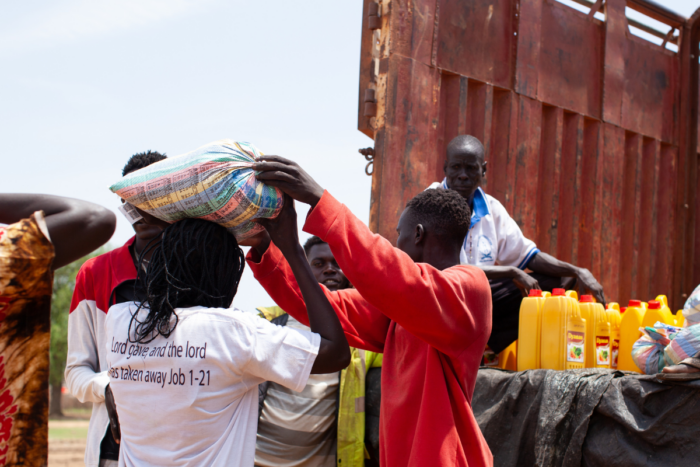Your gifts at work in the Middle East
January 31, 2025
Your gifts at work in the Middle East
January 31, 2025

Dalia, 55, who lives in the West Bank struggles with multiple chronic illnesses. Due to limited access to regular medication, diabetes was her biggest concern. A diabetic foot infection put Dalia at risk of amputation. Unable to afford proper foot care, her situation worsened.
As the Israel-Hamas conflict raged on, over 45,000 people were killed and at least 110,000 injured. The World Health Organization reported that 25 percent of those injured were likely to have acute and ongoing rehabilitation needs including head and spinal cord injuries, burns, and amputations. Gaza now has the most child amputees per capita in the world. And alongside the injured were also people who were dealing with health issues that began before the violence escalated on October 7, from those living with diabetes, like Dalia, to the ones battling cancer. But Gaza’s health care system was also a casualty of the conflict.
In late December 2024, the UN Office for the Coordination of Humanitarian Affairs (OCHA) reported that only 38 percent of primary health centres in Gaza were fully or partially functional, giving the injured and sick limited options for getting medical attention. OCHA also reported that approximately 50 percent of essential medicines were unavailable and an estimated 12,000 patients inside Gaza were in need of medical evacuation abroad.
Through donations to our Middle East Fund, World Renew has been able to support one of our network peers working to share Christ’s hope with civilians struggling with injuries and poor health in Gaza, as well as the West Bank and Lebanon. Our peer reports that since October 2023, they have sent 27 shipments of essential medicines and supplies to support more than 873,700 patients in Gaza, the West Bank, and Lebanon. These shipments have included essential medical supplies, such as insulin needles and syringes, essential medicine to stop the spread of infections, including antibiotics and water purification tablets, medicine for mental health and psychosocial support, and medicine for chronic health conditions, including cancer and non-communicable diseases. One member of our peer’s team said, “While conducting our noncommunicable diseases clinic in Khan Younis, people were very happy to have their medication at a time when [there were] huge shortages, which left thousands of people without treatment.”
Dalia was able to get treatment for a foot wound at a clinic run by our peer’s on-the-ground partner and was provided with a 3-month supply of ointment. This medication significantly improved her life and foot health. “In a time of extreme crisis, access to medication and medical consultation is not just about health—it’s about restoring dignity, hope, and a semblance of normalcy in the lives of those like Dalia and her family,” says a member of the team.
Despite multiple challenges getting aid into Gaza during the conflict, including access restrictions, frequent communications blackouts, and the ongoing threat from air and ground hostilities, our peer says they continually ensured that measures were in place to keep the stock safe at all times, finding the safest and most appropriate routes, ensuring the shipments remained in optimum condition.
“I have seen the profound impact of reliable access to oncology medications on our patients,” shares Rania, the Chief Pharmacist at Tripoli Public Hospital, the primary provider of oncology services in North Lebanon—a region facing significant challenges due to the economic crisis. The support patients have received through our peer “is a beacon of hope, ensuring that patients receive the life-saving medications they desperately need,” says Rania. She also acknowledges that this support is truly appreciated by medical personnel. “Quality donations are not just beneficial but essential in our fight against cancer, enabling us to uphold the right to life for all our patients.”
While we praise God for the recent ceasefires in Gaza and Lebanon, the need in the region is still significant. Please pray for God’s healing for the sick and the injured, his provision for the hungry and displaced, and for his peace to reign.
Give now to help World Renew continue to support our network peers working to share Christ’s hope in the Middle East.
Names and specifics have been removed for security.
Photo credit: Ibrahim Zaanoun
Dalia, 55, who lives in the West Bank struggles with multiple chronic illnesses. Due to limited access to regular medication, diabetes was her biggest concern. A diabetic foot infection put Dalia at risk of amputation. Unable to afford proper foot care, her situation worsened.
As the Israel-Hamas conflict raged on, over 45,000 people were killed and at least 110,000 injured. The World Health Organization reported that 25 percent of those injured were likely to have acute and ongoing rehabilitation needs including head and spinal cord injuries, burns, and amputations. Gaza now has the most child amputees per capita in the world. And alongside the injured were also people who were dealing with health issues that began before the violence escalated on October 7, from those living with diabetes, like Dalia, to the ones battling cancer. But Gaza’s health care system was also a casualty of the conflict.
In late December 2024, the UN Office for the Coordination of Humanitarian Affairs (OCHA) reported that only 38 percent of primary health centres in Gaza were fully or partially functional, giving the injured and sick limited options for getting medical attention. OCHA also reported that approximately 50 percent of essential medicines were unavailable and an estimated 12,000 patients inside Gaza were in need of medical evacuation abroad.
Through donations to our Middle East Fund, World Renew has been able to support one of our network peers working to share Christ’s hope with civilians struggling with injuries and poor health in Gaza, as well as the West Bank and Lebanon. Our peer reports that since October 2023, they have sent 27 shipments of essential medicines and supplies to support more than 873,700 patients in Gaza, the West Bank, and Lebanon. These shipments have included essential medical supplies, such as insulin needles and syringes, essential medicine to stop the spread of infections, including antibiotics and water purification tablets, medicine for mental health and psychosocial support, and medicine for chronic health conditions, including cancer and non-communicable diseases. One member of our peer’s team said, “While conducting our noncommunicable diseases clinic in Khan Younis, people were very happy to have their medication at a time when [there were] huge shortages, which left thousands of people without treatment.”
Dalia was able to get treatment for a foot wound at a clinic run by our peer’s on-the-ground partner and was provided with a 3-month supply of ointment. This medication significantly improved her life and foot health. “In a time of extreme crisis, access to medication and medical consultation is not just about health—it’s about restoring dignity, hope, and a semblance of normalcy in the lives of those like Dalia and her family,” says a member of the team.
Despite multiple challenges getting aid into Gaza during the conflict, including access restrictions, frequent communications blackouts, and the ongoing threat from air and ground hostilities, our peer says they continually ensured that measures were in place to keep the stock safe at all times, finding the safest and most appropriate routes, ensuring the shipments remained in optimum condition.
“I have seen the profound impact of reliable access to oncology medications on our patients,” shares Rania, the Chief Pharmacist at Tripoli Public Hospital, the primary provider of oncology services in North Lebanon—a region facing significant challenges due to the economic crisis. The support patients have received through our peer “is a beacon of hope, ensuring that patients receive the life-saving medications they desperately need,” says Rania. She also acknowledges that this support is truly appreciated by medical personnel. “Quality donations are not just beneficial but essential in our fight against cancer, enabling us to uphold the right to life for all our patients.”
While we praise God for the recent ceasefires in Gaza and Lebanon, the need in the region is still significant. Please pray for God’s healing for the sick and the injured, his provision for the hungry and displaced, and for his peace to reign.
Give now to help World Renew continue to support our network peers working to share Christ’s hope in the Middle East.
Names and specifics have been removed for security.
Photo credit: Ibrahim Zaanoun






